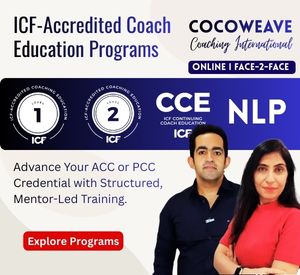As professional coaches, we want to make a difference and to make a good living. As we aspire to financially thrive, it’s important to keep our ethics in check.
Here are three success strategies of becoming an ethical coachpreneur:
1) Build your coaching practice with no debt and no overhead.
When I became a professional coach in 2005, I didn’t have social media, a website, an online presence or an office. So, in order to build my coaching practice, I had to get creative.
I found free coaching spaces like wellness colleague offices and public libraries, for both individual and group coaching sessions. I met many of my clients at their offices, which inadvertently made it super convenient for them to meet with me.
Like I did, you can harness the power of free advertising through editorial opportunities by keeping in touch with your local TV, radio, magazine and newspaper journalists. It’s free to find them and send press releases with newsworthy information about a workshop, retreat, book signing or speaking engagement.
In 2012, I started my training business with no debt and no overhead because I didn’t want to add stress to my new startup venture.
I found free training venues by co-founding an official student organization at a local university so that I could utilize free meeting spaces at its student center and student cinema. I bartered for tax preparation services, business consulting, professional photography and legal support to obtain my trademarks.
Also, having a prosperity consciousness when starting your coaching practice is vital. This is another “free” way to manifest money. When you set up your business bank account online login, use a term that invokes prosperity like “iamthriving.” Then, opt out of an auto sign-in so that you are prompted to type those words each time you sign in. This will reinforce your positive money mindset.
2) Be the metal–not the magnet.
I call this “metallic marketing.” Picture a pile of shiny silver in your hands. This pile is you. Now imagine attracting your ideal clients. We are the only species who can imagine ourselves in the future, so use this to your advantage. Imagine a thriving coaching practice. Imagine your clients giving you solid referrals. Imagine yourself becoming a well-paid coach who’s known for your talent.
The opposite of this feels desperate and overly eager. You’re like an octopus trying to grab onto potential clients and draw them in. You’re hustling. You’re unnecessarily funneling. This is much harder.
Doing good work will bring you referrals. Being a great coach will increase word of mouth about the positive effect you’re having on lives.
Having confidence about your profession, specialty and industry goes a long way in marketing. When you speak to others about what you do, be confident. This will garner you clients, and there’s no need to apologize if you’re new at coaching.
3) Be of service first.
What “wantrepreneurs” typically think (in this order) is:
- “I want to make money working for myself.”
- “I want to do something I’m passionate about.”
- “When I’m successful, I’ll start giving back.”
Most entrepreneurs and newly certified coaches first want to make money in order to leave a full-time job while doing something that they love. Then when successful, they consider giving to charity via donations or pro bono work. I say flip that model and be of service first by doing something that you love because the money will naturally come.
Start your practice with pro bono gigs to gain experience and exposure. Flex your humanitarian muscles. This could be as simple as doing some free group coaching as part of a corporate wellness initiative as a local business.
You can volunteer at a nonprofit organization. This might get you some media exposure. You can also do some free “public speaking” as group coaching to get the word out about your private practice.
Paying it forward is an integral part of your coaching practice. This generosity will not take away from your bottom line. You can even obtain grants for pro bono coaching programs.
How did I learn this? I’ve worked with entrepreneurs over the past 25 years, helping them build their startup companies. I learned from their methods and mistakes, their trials and triumphs. Then I became an entrepreneur myself–first as a professional coach and then as a business owner.
Being a coachpreneur is one of the most valuable things you’ll ever do. These three strategies will help you get you there ethically.
Disclaimer
The views and opinions expressed in guest posts featured on this blog are those of the author and do not necessarily reflect the opinions and views of the International Coach Federation (ICF). The publication of a guest post on the ICF Blog does not equate to an ICF endorsement or guarantee of the products or services provided by the author.
Additionally, for the purpose of full disclosure and as a disclaimer of liability, this content was possibly generated using the assistance of an AI program. Its contents, either in whole or in part, have been reviewed and revised by a human. Nevertheless, the reader/user is responsible for verifying the information presented and should not rely upon this article or post as providing any specific professional advice or counsel. Its contents are provided “as is,” and ICF makes no representations or warranties as to its accuracy or completeness and to the fullest extent permitted by applicable law specifically disclaims any and all liability for any damages or injuries resulting from use of or reliance thereupon.
Authors
Post Type
Blog
Audience Type
Experienced Coaches, External Coaches, ICF Chapter Leaders, Internal Coaches, Mentor Coaches, New Coaches, Professional Coaches, Team and Group Coaches
Topic
Building a Successful Coaching Business, Business Development
Related Posts
How to Use LinkedIn to Establish Thought Leadership
LinkedIn offers coaches a powerful opportunity to attract new clients, establish thought leadership, and grow…
The Executive Coaching Blueprint: Positioning, Pricing, and Performance
Transitioning from corporate to coach can feel like uncharted territory for many…
Why Coaches Need Other Coaches
Setting the Foundation When you’re learning about the field of coaching while…







